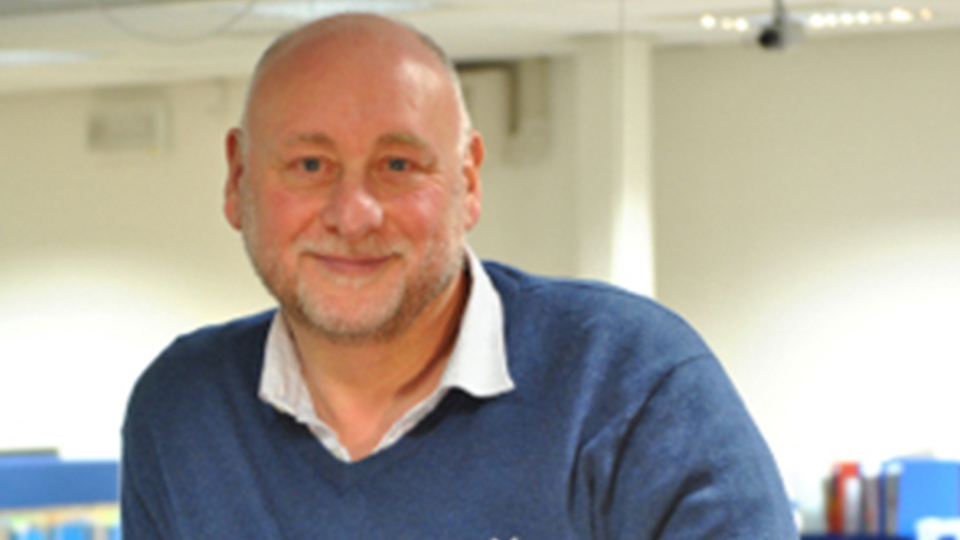Mental health patients too coy to contact their GP
Date published: 21 May 2020

Ivor Eisenstadt, Managing Director of MGP
“Don’t let anxiousness about catching COVID-19 or guilt around bothering the NHS at a busy time, stop you from seeking help and receiving vital medication.”
That’s the message from medics at the close of Mental Health Awareness Week (18-24 May), after a new UK survey revealed that 47% of staff at surgeries are worried about the impact of fewer face-to-face appointments on mental health patients.
Carried out by medical publishers MGP and located on their Guidelines in Practice website, the report showed that 99% of healthcare professionals in primary care settings were concerned that online and telephone appointments meant that serious symptoms could be missed (visit https://www.guidelinesinpractice.co.uk/)
And according to one GP, a lack of personal time with patients might mean that conditions such as depression and anxiousness could spiral into very serious issues.
Dr Zahid Chauhan OBE specialises in dealing with vulnerable patients from his Greater Manchester practice. He said: “Lockdown has been a tremendously difficult time with fear, loneliness and stress coming to the fore.
"Add to that uncertainty around employment and concerns about debt and you have the kind of mental health problems that could descend into addiction, self-harm and even suicidal thoughts.
"GPs are doing all they can with online appointments and telephone triage, but patients must come forward and absolutely MUST continue with their medication – even if it has to be delivered to their door.”
One such patient who was reticent to speak to his doctor was George (not his real name) from Manchester. An NHS worker and life-long sufferer of clinical depression, he said: “Work and grieving for a lost relative were really getting me down but I was reluctant to get in touch with my GP or even collect my prescription because I didn’t want to bother my busy colleagues.
"Whatever people say, there is still a stigma attached to mental health issues, particularly for men, and I just thought there are patients in greater need than me. Things got particularly dark, but I had the sense to contact my doctor who was massively understanding, and I got my treatment sorted out.”
Generally, the survey showed that respondents (including those working within COVID-19 hubs) were working in a new way and employing technology successfully.
Away from the study, charities, private counsellors and the NHS have increased their online presence, offering group and one-to-one counselling sessions.
Ivor Eisenstadt, Managing Director of MGP (pictured) added: “The very real qualities of adaptability and innovation shine through from this survey and health carers have displayed that they will use what they have available to continue offering the very best service they can.
"Even more so, their concern for their patients whether they are displaying early symptoms of cancer or mental health issues, is demonstrable.
This must be a very difficult time for those with a propensity to mental health issues, but we must encourage them to persevere with their treatment. Their conditions are equally as important and indeed life-threatening as physical ailments, and our surgeries have the expertise and understanding to help them.”
Hosted by the Mental Health Foundation, Mental Health Awareness Week takes place between 18-24 May. This year’s theme is kindness.
Learn more at https://www.mentalhealth.org.uk/campaigns/mental-health-awareness-week
The impact of the coronavirus on primary care survey was organised by MGP in collaboration with Dr Sandesh Gulhane and published by Guidelines in Practice. Data was analysed by BrainSell.
Do you have a story for us? Want to tell us about something going on in and around Oldham? Let us know by emailing news@oldham-chronicle.co.uk , calling our Oldham-based newsroom on 0161 633 2121 , tweeting us @oldhamchronicle or messaging us through our Facebook page. All contact will be treated in confidence.
Most Viewed News Stories
- 1The Oldhamers handed awards in King’s New Year’s Honours List
- 2Oldham slammed over ‘shameful’ deprivation statistics
- 3‘Magnet for fly-tipping’ leaves residents disgusted
- 4Karen's walk to Hartshead Pike proves to be a load of rubbish
- 5Homeowner ordered to remove ‘harmful’ windows on Grade II-listed building




